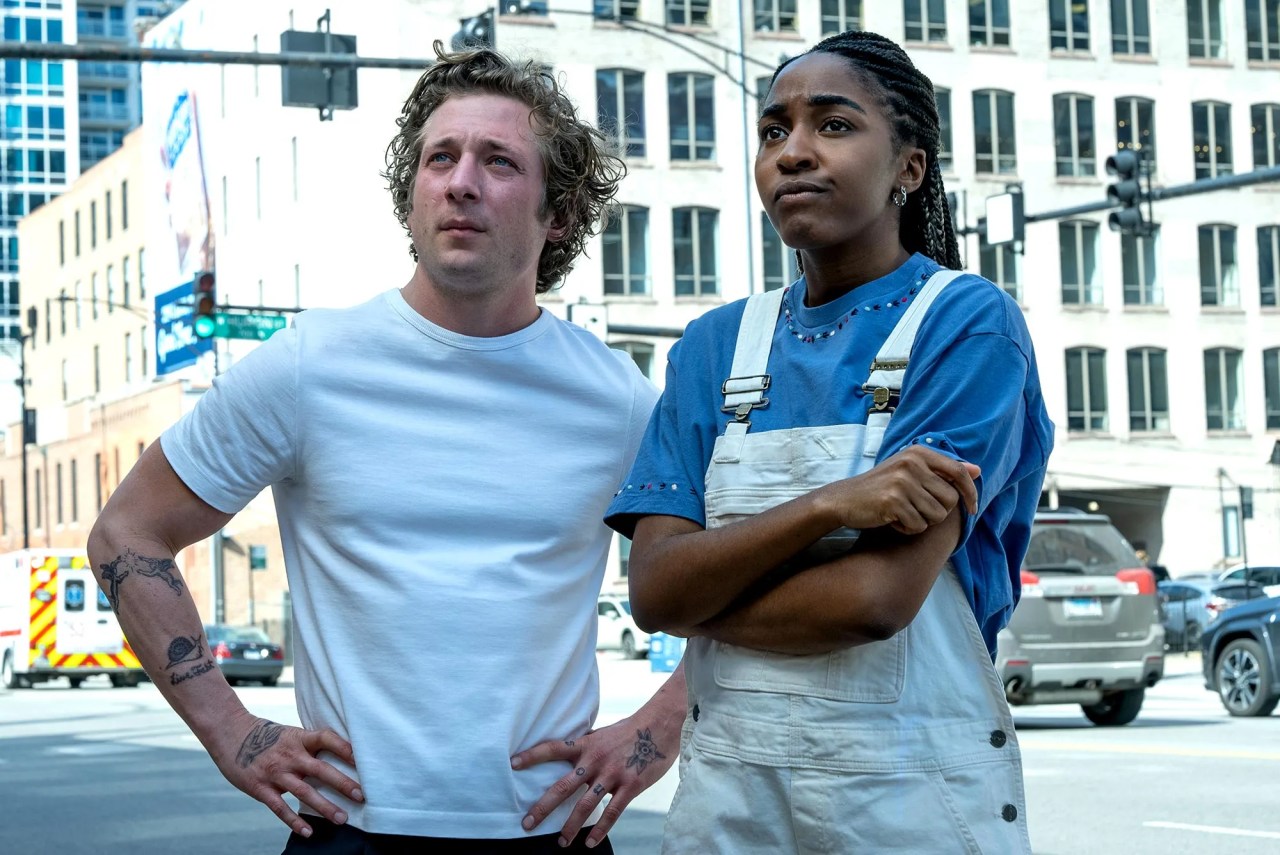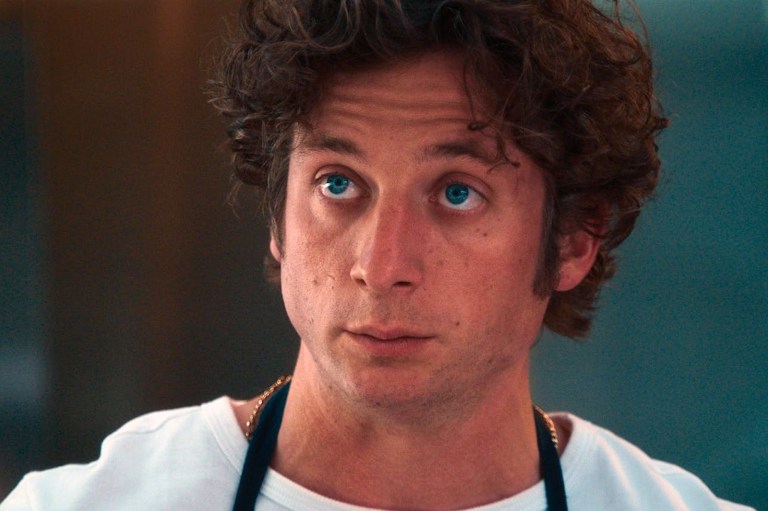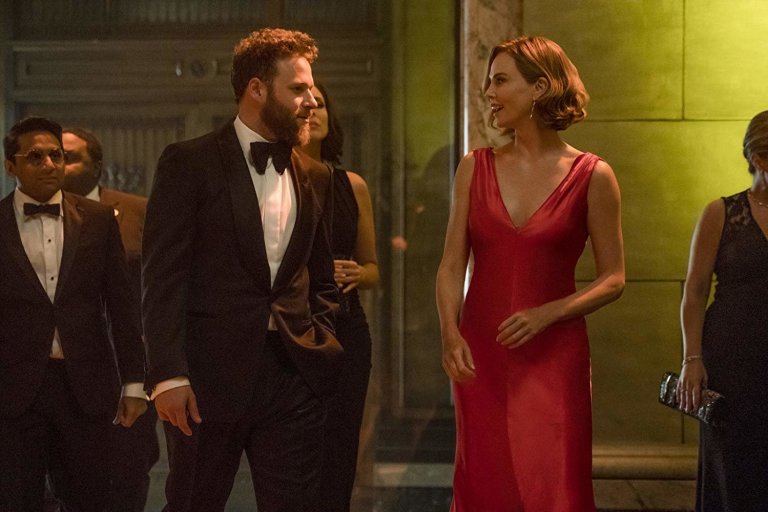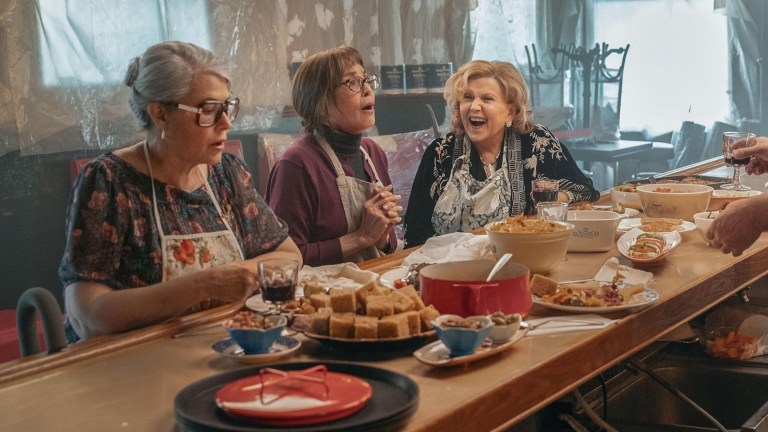
10 Mind-Blowing Hidden Details You Missed In ‘The Bear’ That Change Everything
From subtle design choices to symbolic tattoos, these 10 Easter eggs from The Bear change the way you’ll see the show’s intense, chaotic world.
Hulu’s The Bear serves up layers of meaning behind every perfectly plated dish and frantic kitchen rush. As you peel back some of these hidden details — from Carmy’s obsessive knife routine to those eerily placed photos of his brother Michael — you’ll find a deeper understanding of these characters and their world. Here are ten mind-blowing details you probably missed, each one adding a new flavor to the show’s rich storytelling.
Carmy’s Knife Ritual – A Meditation Against Chaos
If you watch Carmy with his knives, you’ll see it’s not just about keeping them sharp – it’s about keeping himself together. He sharpens his blades and lines them up perfectly. And after a chaotic service, he’ll methodically wipe them down. These rituals feel more emotional than practical. It feels like he is trying to find control and order in an uncertain world. For Carmy, keeping order in the kitchen helps manage the chaos in his life.
Michael’s Ghost in the Photos
Ever notice those photos of Michael lurking in the background? They’re like silent reminders of everything Carmy’s trying to live up to and everything he couldn’t save. What’s really gut-wrenching is how these photos seem to show up exactly when Carmy’s about to make a big decision or hit a breaking point. There’s this one shot where Carmy’s working late, and a photo of Michael is just barely visible in the reflection of a stainless steel fridge – it’s the kind of detail that hits you right in the chest once you spot it. The deliberate placement makes us feel like he’s still watching over the restaurant, judging every move.
Sydney’s Secret Cookbook World
Keep your eyes peeled for Sydney’s cookbook – it’s basically her diary, battle plan, and dream journal all rolled into one. In between normal recipe notes, she’s scribbled things like “faster prep = better service” and “fine dining techniques in fast-casual setting???” What makes this detail so awesome is how it shows Sydney isn’t just there to cook – she’s plotting a culinary revolution in those margins. There’s even a page where she’s sketched out her ideal kitchen layout, with little arrows and flow charts that would make any efficiency expert proud.
The Bourdain Connection
Anthony Bourdain’s influence is scattered all throughout The Bear. If you watch carefully, you can catch glimpses of Bourdain’s Kitchen Confidential on a shelf, or spot magazine clippings that look suspiciously familiar to anyone who followed the chef’s career. These aren’t just random props – they’re breadcrumbs leading us to understand why Carmy pushes himself to the edge. In one scene, you can even spot a framed quote that could’ve come straight from Bourdain’s playbook about the fine line between genius and madness in the kitchen.
That Constant State of Alert
Ever notice how you feel slightly anxious watching the show, even during quieter moments? That’s because the sound designers are messing with your head – in the best way possible. Listen closely and you’ll hear phantom ticket machines, distant timers, and phones that might be ringing (or might just be in your head). It’s exactly how real kitchen workers describe their days off – still hearing those ghost sounds that keep them on high alert. It’s brilliant sound design that puts us right in Carmy’s stressed-out headspace.
“Yes, Chef” – Two Syllables, Endless Meaning
“Yes, Chef” isn’t just kitchen lingo in this show – it’s practically its own language. Pay attention to how different characters say it: Tina says it with pride, Sydney sometimes uses it like a challenge, and Marcus’s “Yes, Chef” evolves as his confidence grows. The phrase becomes this fascinating mirror reflecting where everyone stands with Carmy and with their own place in the kitchen hierarchy. There’s even a moment where someone’s silence – their refusal to say those two words – speaks louder than any dialogue could.
The Stories Written on Carmy’s Skin
Those tattoos Carmy sports aren’t just random chef ink — they’re like chapters in his life story. Each piece of art on his skin marks a milestone, a lesson, or a scar from his journey through the culinary world. The knife on his arm resembles the one that his mentor used. In one shot, you can even spot what looks like coordinates – possibly marking the location of the first kitchen where he really learned to cook.
Chicago, Served Family Style
If you know your Chicago food scene, this show is like one big scavenger hunt. The set designers went all out dropping real-city Easter eggs everywhere — from the vintage Maxwell Street Market poster in the back office to the subtle nod to Hot “G” Dogs in the street scenes. These aren’t just random props — they’re love letters to Chicago’s incredible food culture. There’s even a scene where the style of their Italian beef rolls gives a knowing wink to a famous South Side sandwich joint.
The White T-Shirt Theory
Carmy’s white T-shirt game is next level, and it’s definitely trying to tell us something. In a world of chef’s whites and formal kitchen wear, his simple tee feels like a rebel statement. And when that pristine white becomes a canvas for the day’s battles – as every stain, every splash of sauce becomes visible – it parallels the slow reveal of Carmy’s emotional struggles. It’s this brilliant visual metaphor for trying to maintain perfection in a messy world.
Marcus’ Hidden Pastry Dreams
The detail in Marcus’ pastry development scenes is mind-blowing once you really look. His notebook is filled with sketches that reference some of the world’s most innovative pastry chefs – there’s a clear nod to Dominique Ansel’s cronut, but also hints at creations from Pierre Hermé and Christina Tosi. What makes this so special is how it shows Marcus isn’t just dreaming about making desserts – he’s studying the revolutionaries who changed the game. His quiet ambition shows up in these tiny details that most viewers probably missed completely.










